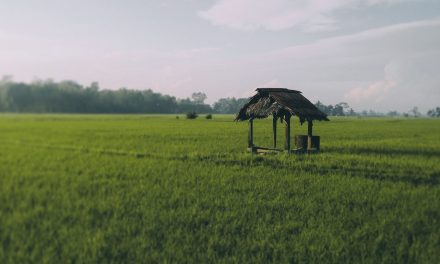Genesis 14:1–16: The Custodianship of Abram
Introduction
The world has much to offer. To be clear, the world never really offers us things; instead, the world offers fulfillment for our many desires. Everywhere we look, the world promises us not just food, drink, entertainment, wealth, accolades, and sex, but satisfaction for the deeper longings behind those things: pleasure, satisfaction, security, comfort, joy, hope, and love. This has always been Satan’s strategy since the garden of Eden. In the garden, the serpent did not really offer Adam and Eve fruit; rather, the serpent offered the false promise of what the fruit would give them: God-like wisdom (Gen. 3:5). In the end, the woman took the fruit only partially because she saw that the tree was “good for food”; the bigger reasons for taking the fruit came in her assessment that “it was a delight to the eyes, and that the tree was to be desired to make one wise” (Gen. 3:6). It is the promise of gaining wisdom independently of God that makes the promises of the world so difficult to resist.
As Christians, we recognize that the world cannot deliver what it promises, but we also understand that we cannot live apart from the world. On the one hand, no amount of worldly possessions, achievements, or experiences apart from God will give us what our hearts long to possess. On the other hand, God never intended us to live apart from the material things of this world like food, water, shelter, and clothing. Even more, we cannot live apart from relationships we forge in this world—including many relationships with unbelieving people. God created us to live firmly in this world, even as he warns us not to worship what is in this world. God neither asks us to withdraw from this world, nor does he want us to. Indeed, his ultimate strategy is not to abolish the world altogether, but to renew the heavens and the earth so that we can live in the world as he originally intended for us (cf. Rev. 21–22).
The question, then, is not whether we will live in the world, but how. Fundamentally, there are two different ways of relating to the world. On the one hand, we can live as consumers of what that the world has to offer. Under this approach, we see the world as existing for our benefit, and we leverage the resources of the world to gain whatever it is that we think we most need. That is, as a consumer we believe that the world exists for the benefit of us. For the Christian, this approach is forbidden. For one thing, this world cannot satisfy the God-shaped desires of our hearts. Beyond that, we also recognize that this world belongs to God, not to us. As such, we are merely stewards, managers, caretakers, and custodians of what belongs to God. As custodians, we acknowledge that the world exists for the benefit of Christ and his kingdom. In some ways, serving in a custodial role as stewards of God’s creation means that we must deprive ourselves of pleasures and comforts that Satan peddles to worldly consumers. Ultimately, though, being God’s custodian is better than being the world’s consumer.
Discussion Questions
1. How much do you pay attention to current events and worldly affairs? Does this story differ that much from the conflicts of the worldly kingdoms that exist today? How should Christians approach news about the conflicts of of this world? How does God keep us independent of the world’s conflicts? How does God send us into the world’s conflicts?
2. What does the text suggest about why Lot now lives in Sodom? How easy is it for believers to be drawn into the allure of the world? In what ways are you most tempted to cozy up to the world as a consumer? Why are the temptations of the world so deceptively tempting? What dangers do you put yourself in by casting your lot with the world?
3. Why does Abram the Hebrew enter into a covenant with his neighbors? What does this teach us about how believers should live in the world, but not of the world? What is the difference between being a stewarding custodian of God’s world as opposed to a greedy consumer of all that the world has to offer? What does God entrust to your care taking?
4. What do we learn from the warfare that Abram wages in this passage? What does this foreshadow about the conquest of Abram’s offspring, Israel, as well as the cross of Abram’s offspring, Jesus? Why does God choose to bless or curse the whole world based on the world’s relationship to Abram? Is this fair? Is this gracious?




